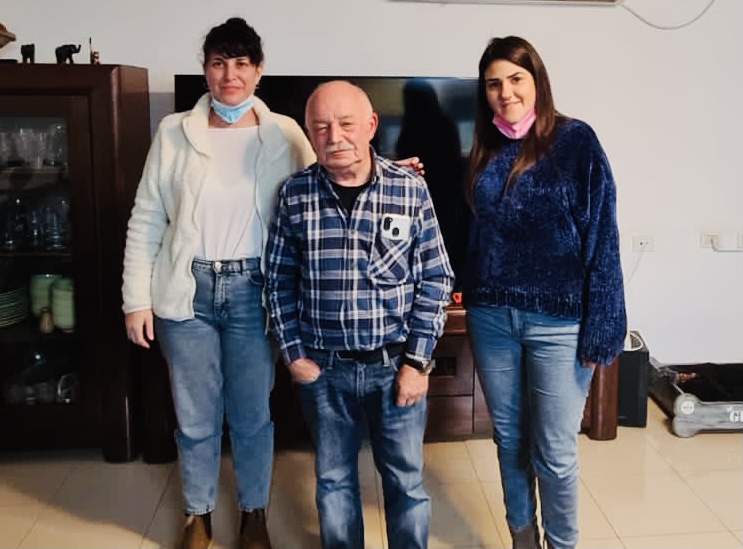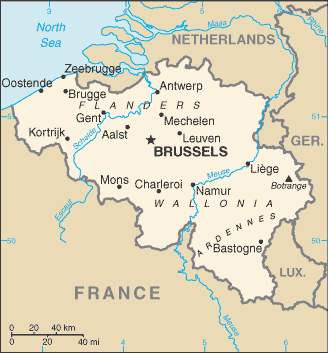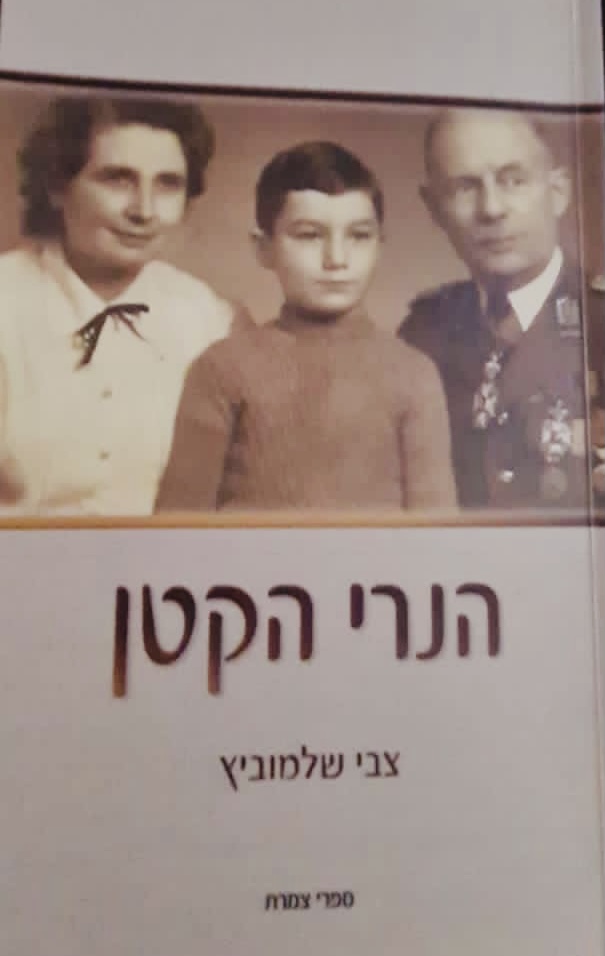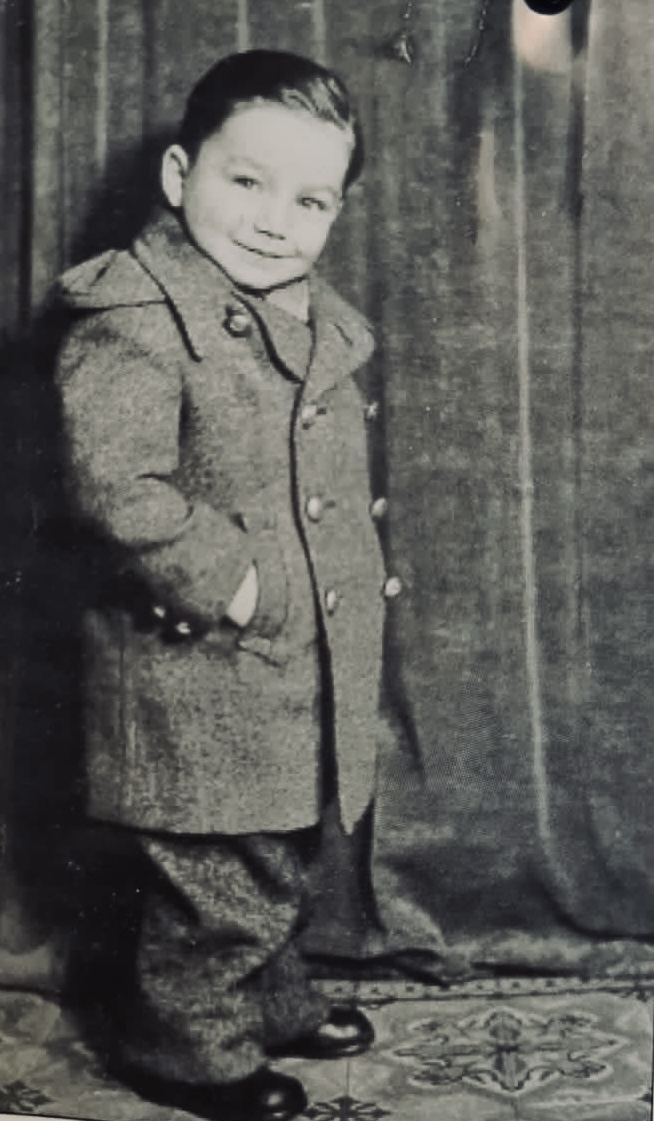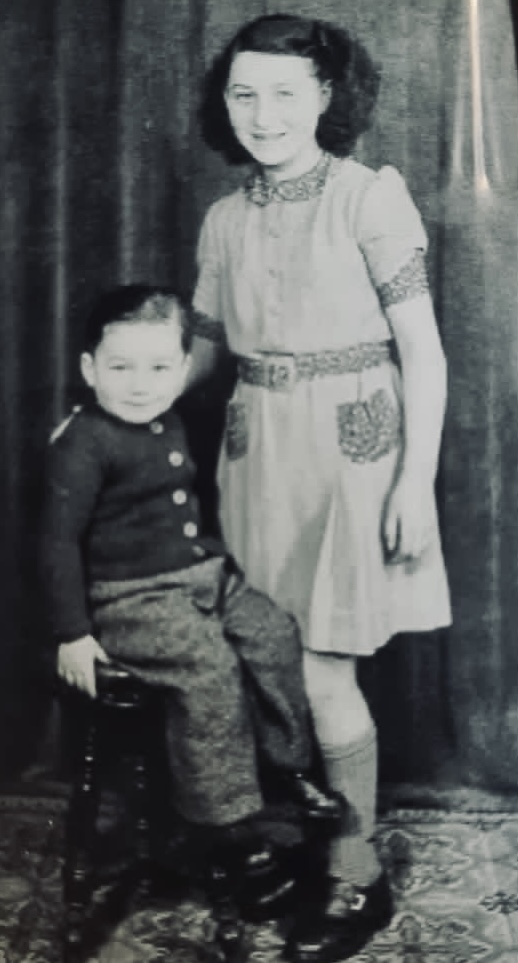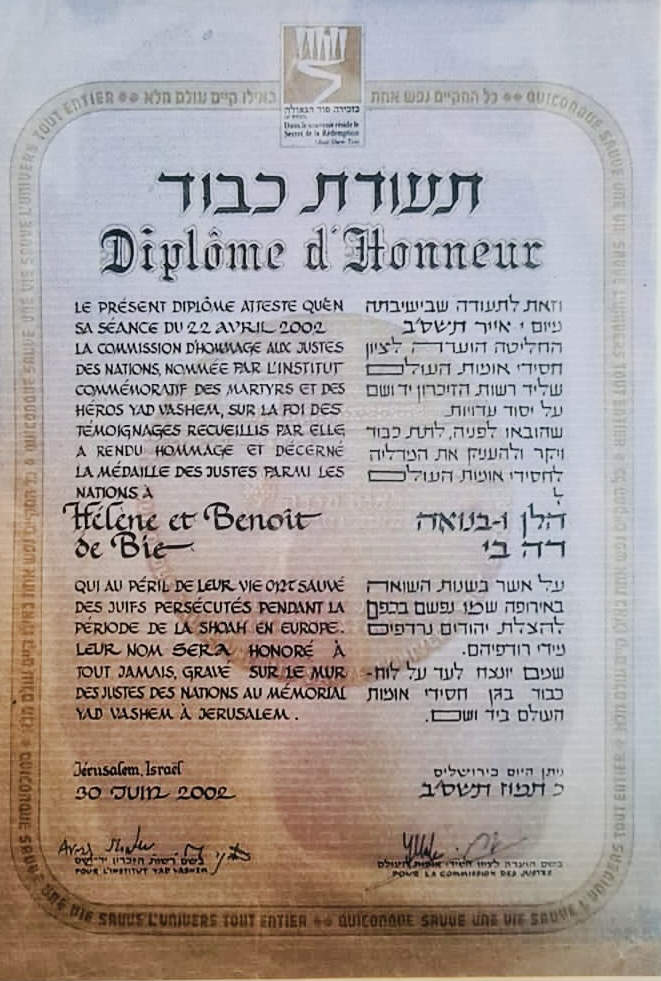Zvi was born on June 21, 1942 to Avraham and Sora Shalamovitch in the city of Brussels in Belgium. His older sister is Sarah. Zvi says that he was born into the reality of the war. In May 1940, the German army invaded Belgium and immediately applied the Nuremberg Laws to the Jewish population. Zvi's sister was forced to leave school but, on the other hand, Avraham, a shoemaker, continued to work and even served Nazi soldiers.
In January 1942, the Nazi army began deporting the Jews from Belgium to Poland and from there to the extermination camps. Zvi's parents realized the danger and decided that they must find a way to hide in order to save themselves. The family created a hiding place above Avraham's shop. One day, when the Germans were looking for Jews who had remained in hiding, they came to the building where Zvi's family was hiding. Of course, the family hid inside the secret apartment they had. Zvi says that one of the neighbors had helped the family to place a closet on the door which concealed the apartment and so, in fact, the Germans did not discover them.
Zvi was actually born during the time the family was in hiding and the family remained in hiding for nearly eleven months. Toward the end of 1942, on one of the few occasions when his mother ventured out, she was caught with her sister and both were sent by the Germans to Auschwitz, where his mother was murdered.
Shortly before that, in November of that year, using the help of the Belgian underground, Zvi's parents had managed to hand him over for adoption. Zvi says that his parents had no idea where he was being taken. "The condition for my transfer was that my parents did not know about the place they taking me. At first, I was hidden in a girls' boarding school. Three other boys were hidden with me. Eventually, Hélène, the boarding school overseer, a woman about 40 years old, found Christian families willing to hide and protect those three children. However, my story was different.
The boarding school overseer Hélène and her partner Benoit de Bei were a childless couple and they decided to take me into their care, and in order not to confuse me, they told me to call them "Uncle" and "Aunt", and gave me the name Henry. We had to leave Brussels and move to Antwerp for a while. Just before we moved, Hélène contacted my father and let him see me once again so we could say goodbye properly."
"A very important detail that I found out later was that at the end of the meeting, held in a park in Brussels, my sister followed us and so she also knew later, when the war ended, where to look for me."
Zvi says that he stayed with his adoptive family throughout the war. When the war ended, his father and sister began searching for him. Zvi's sister, who had followed them at that farewell meeting in the park, remembered Hélène’s address, and when she went there to look for her brother, an older woman told them that the couple who had lived there with a child who did not belong to them, had moved.
The same woman gave Hélène 's full name to Zvi's sister and with this information Avraham turned to the police for help. They found Hélène 's sister's place in the village of Kontich in northern Belgium. Avraham and Sarah immediately went to that village and even managed to find Hélène's phone number.
"The phone call was very exciting," says Zvi. "Hélène gave me the phone and explained that it was my father. I didn't quite understand at first who I was talking to, since I had not seen my family for years and I was a very young child. But I was still very, very excited. After the conversation, I remained with my adoptive parents for some time. That was because my life with my adoptive parents was happy and comfortable. They always cared for me and loved me. However, following the war, my father could not care for me, so I stayed with Hélène and Noa until the age of six."
Only then, three years after the end of the war, did Zvi return to his home. He remained in contact with his adoptive family until Hélène and Benoit's deaths.
"The last time I met my adoptive mother I asked her, 'Why did you save me?' She looked at me surprised and offended and replied, 'What do you mean?! I'm a good Christian. That's what I should have done.' Two weeks after that visit, my adoptive mother passed away."
Zvi applied to Yad Vashem to have his adoptive parents recognized as Righteous Among the Nations and indeed, in 2002, at the Israeli Embassy in Brussels, Hélène's nephew received the certificate on their behalf. In his speech at the reception, he noted, "If my aunt were still alive she would be very surprised at this great honor being done to her, because, for her, what she did was natural, for her and for any person with a human nature”.
